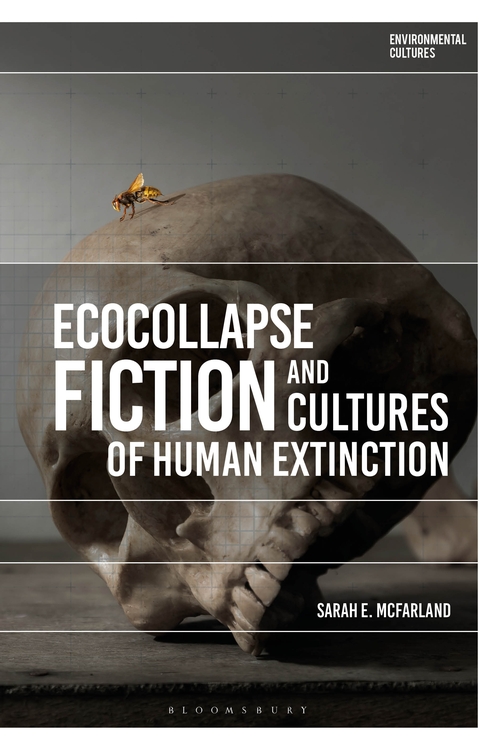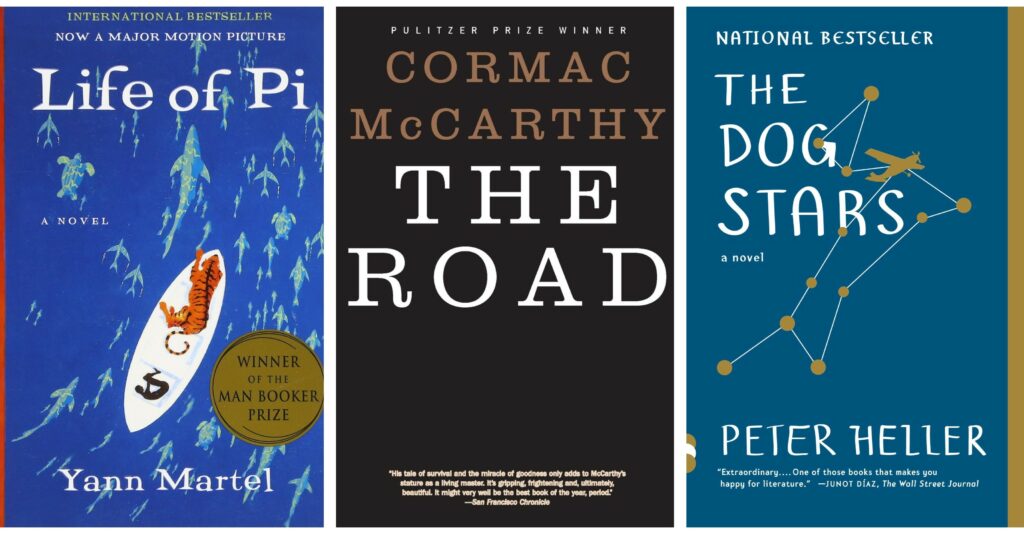By Sarah E. McFarland
In the barely comprehensible present, it’s difficult to avoid tediously repeating details about how the entangled, irreversible, and accelerating climate crisis is disastrous for millions of humans and uncountable other lives on this planet. As ASLE members are well aware, environmentalists have been sounding clarion calls for decades with little or no effect at the global level, and many books have addressed the complexity of successfully mitigating climate change when it is approached as fragmented problems we can’t seem to conceptualize into a coherent whole. George Marshall’s Don’t Even Think About It: Why Our Brains Are Wired to Ignore Climate Change is one example; he provides a breakdown of reasons for those failures and what individuals can do.
Yet even as climate change has already caused incalculable species extinctions and visible and unseen suffering for millions of people, the possibility of human extinction (perhaps the only motivation for a species sardonically dubbed homo narcissus) hasn’t gained traction among those with the political, financial, or industrial capacity to institute immediate, global, systemic changes. Nonetheless, as an ecocritic and literature professor, I believe and teach that literature matters, that the empathetic intelligibility experienced by the emotionally complex act of reading through a diversity of perspectives can transform how we better understand the complex world from different positions of situatedness, and that that might help change things.
 I began writing Ecocollapse Fiction and Cultures of Human Extinction more than a decade ago in response to my own empathetic response to the mother’s decision to die by suicide in Cormac McCarthy’s utterly devastated, unsurvivable worldscape in The Road, which then expanded to explore other characters’ difficult but prudent choices involving their bodily materiality and agency in postapocalyptic fiction. With an eye toward finding realistic experiences, I sought out those works that did not rely on science fiction elements like space travel or other futuristic technology, aliens, zombies, or other fantastical aspects (Adam Trexler’s Anthropocene Fictions: The Novel in a Time of Climate Change expertly documents hundreds of science fiction and fantasy examples of what is now called climate fiction). Yet I found that most “realistic” speculative literature also resists facing the potentiality of human species extinction by following traditional generic conventions, including a predilection for redemptive endings for a small group of human survivors with the means of escaping the consequences of anthropogenic ecocollapse. Is a survivable ending (for some) a reasonable outcome for the massive climate chaos, violence and genocide, biodiversity loss, resource conflicts, political and social upheaval, mass (human and nonhuman) migrations, deaths, and extinctions, and untold (racialized, sexualized, differently-situated) sufferings that we are already experiencing on Earth? What can the humanities teach us?
I began writing Ecocollapse Fiction and Cultures of Human Extinction more than a decade ago in response to my own empathetic response to the mother’s decision to die by suicide in Cormac McCarthy’s utterly devastated, unsurvivable worldscape in The Road, which then expanded to explore other characters’ difficult but prudent choices involving their bodily materiality and agency in postapocalyptic fiction. With an eye toward finding realistic experiences, I sought out those works that did not rely on science fiction elements like space travel or other futuristic technology, aliens, zombies, or other fantastical aspects (Adam Trexler’s Anthropocene Fictions: The Novel in a Time of Climate Change expertly documents hundreds of science fiction and fantasy examples of what is now called climate fiction). Yet I found that most “realistic” speculative literature also resists facing the potentiality of human species extinction by following traditional generic conventions, including a predilection for redemptive endings for a small group of human survivors with the means of escaping the consequences of anthropogenic ecocollapse. Is a survivable ending (for some) a reasonable outcome for the massive climate chaos, violence and genocide, biodiversity loss, resource conflicts, political and social upheaval, mass (human and nonhuman) migrations, deaths, and extinctions, and untold (racialized, sexualized, differently-situated) sufferings that we are already experiencing on Earth? What can the humanities teach us?
To address these and other questions, Ecocollapse Fiction and Cultures of Human Extinction approaches ecocollapse fiction from a different angle than other scholarly works. I found that the seductive thrill of human exceptionalism that pervades Western humanism, together with traditional plot structures, makes penning human susceptibility to species extinction difficult. Rather than identifying a flurry of literary examples, then, the book thoroughly explicates a few texts with a precise focus on the ways that representations of species precarity and the difficult choices faced by characters in devastated ecosystems demonstrate radically multiplicitous and diverse conceptions of what it means to be human. It explores the false durability of ethical constructs and the imbrications of cannibalistic, morally-complex cultures that arise as further entanglements of bodily materiality at points of privation and extinction, and it analyzes the experiences of a last human witness to global climate transformations and species extinction.
Accordingly, the body chapters build on each other: first unpacking the hierarchical proclivities that haunt the anthropocentric subject to explore the intricacies of entanglement in Yann Martel’s Life of Pi; then developing a deep analysis of the stages of ecocollapse and adaptation that further obliterate human exceptionalism in Helen Simpson’s “Diary of an Interesting Year” and Cormac McCarthy’s The Road; and finally, bringing Peter Heller’s The Dog Stars into conversation with the worldviews uncovered in previous chapters to analyze the last surviving human witness’s report of loss and loneliness in a post-pandemic, climate-changed environment (a chapter that now seems disconcertingly prophetic). The book thus constructs an overarching case for what Bill McKibben calls “what things feel like” from within the perils of our planet’s present climate crisis (for some) and global near future.

The conclusion retains the species humility of the preceding chapters: rather than closing with either resigned fatalism or false hope, I return to the characters examined in previous chapters to further unpack the adaptive features they model as mortal animals no longer deluded by human exceptionalism in ecocollapsed worlds. Forecasting human extinction necessitates coming to terms with the complex mapping of ecosystems, global warming, and human and nonhuman cultures to exert pressure on individualism’s contradictions, exclusions, repressions, and marginalizations toward welcoming what emerges beyond the incoherence of exceptionalist thinking. The book directs the focus of analysis toward issues of justice and injustice, structural inequalities, and the systemic oppressions at work to explore the damaging repercussions of colonialism, global inequity, racism, poverty, and other sociopolitical oppressions that contribute to differentiated kinds of vulnerability in the Anthropocene.
My hope is that by challenging the seductive quality of human exceptionalism and developing the book in this way, readers gain the ability to imagine beyond the vague notion of “climate destruction” and “mass species extinction” toward an empathetic intelligibility of extinction from multiple perspectives, human and nonhuman, and that we can do something with what that capacity evokes.
 Sarah E. McFarland is professor of literature and theory at Northwestern State University in Natchitoches, Louisiana. She has published widely in the environmental humanities, including in ISLE, and co-edited Animals and Agency: An Interdisciplinary Exploration.
Sarah E. McFarland is professor of literature and theory at Northwestern State University in Natchitoches, Louisiana. She has published widely in the environmental humanities, including in ISLE, and co-edited Animals and Agency: An Interdisciplinary Exploration.
